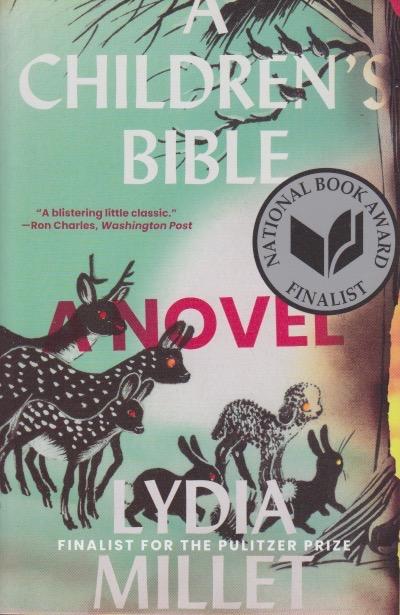
Sometimes when I go into a bookstore I don’t find anything on my list. (My list is pretty strange, and it includes many older titles.) I feel strongly about supporting bookstores, however, and I search for something I would like to read. So I found Lydia Millet’s A Children’s Bible. I hadn’t previously heard of it but it was in the speculative section and it wasn’t 400 pages or more. It turns out that it’s set at an indefinite time but it seems to be not too far in the future, when global warming has really kicked in. A group of kids whose parents are affluent, but not ultra-wealthy, are spending the summer at a large house on the coast. You get the sense that this house is a lot further inland than the present east coast. The parents are childlike in their hedonism, whereas the kids really despise their constant drinking, drug use, and general lack of care. The kids are independent and try to make their own way, but then a massive hurricane hits.
In the aftermath, the kids run away. Society has broken down, however, with bands of roving armed men breaking in and taking whatever supplies they want. They find the compound the children are using, setting this almost as a horror story. I won’t say anything more about the plot because that might give too much away. Astute readers know that it isn’t possible to say definitively what a book is about, but I would say this is almost a parable about global warming—it has “parable” written all over it. Irresponsible adults have let this happen and the children have to figure out solutions. And yes, there is a Children’s Bible in the story and it plays a part in the plot. I have to admit the the title is what first caught my attention.
I don’t know Lydia Millet’s other work, but this was not exactly an enjoyable novel, it seems like an important one. I’m glad to have read it. The kids in the novel, the older ones, are skeptical of the Children’s Bible when it’s introduced. Two of the younger kids, see it as providing direction on how to survive in science-versus-nature world. All of the kids here are incredibly prescient and precocious. The adults are unable to adjust to the changing world and although the Bible remains with the children it leaves the reader with the haunting question of what comes after Revelation. This is a book that would benefit from serious pondering.
